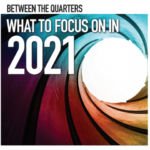U.S. insurers are increasingly listening to demands from stakeholders that they use social and environmental factors in their decision-making, according to a new AM Best survey.
The ratings entity found that 6 in 10 companies were aware of greater demand from stakeholders to consider what is known formally as environmental, social and governance (ESG) factors as they made decisions. While the U.S. is still behind Europe in terms of ESG integration, AM Best said the results are still noteworthy, and that U.S. carriers should consider how to most effectively put ESG factors into practice.
“Survey results show that insurers believe there are risks to ignoring stakeholder pressures related to ESG factors, and particularly with regard to diversity and inclusion, carriers generally view corporate governance as key to managing and mitigating reputational risk,” Rosemarie Mirabella, director, AM Best, said in prepared remarks.
AM Best surveyed rated property/casualty, life/annuity and health insurers and reinsurers operating in the United States on their approaches to ESG principles, and found that carriers’ focuses vary by segment.
While property/casualty insurers’ responses showed that they focus more on environmental risks in their ESG engagement, life/annuity insurers said they concentrate mainly on investment risk, given the importance of yields, liquidity and asset-liability matching to their businesses. Health insurers have put greater ESG attention on the social impacts of health equity, which has been subject to added scrutiny during the pandemic, to eliminate disparities in health outcomes.
At the same time, according to the new Best’s Special Report, “U.S. Insurers’ Perceptions of ESG,” the survey found that all three U.S. insurance segments are focused on corporate governance.
Other report highlights:
- Between 40-50 percent of surveyed U.S. insurers and reinsurers, and 51 percent of stock companies versus 42 percent of mutual companies, are actively engaged with ESG.
- More than 50 percent of respondents in the property/casualty and life/annuity industries agree that proper understanding and integration of ESG factors is increasingly critical to the long-term viability of their business, versus 39 percent from the health insurance industry.
- Roughly 60 percent of U.S. insurers and reinsurers seek greater clarity from regulators, particularly with respect to identifying, measuring and reporting ESG factors.
- Integration of ESG factors into the investment process appears to be ahead of underwriting. Less than a quarter of AM Best survey respondents in each segment believe it is extremely or very important for underwriters to consider ESG factors in the underwriting process.
Source: A.M. Best





















 From Skill to System: The Next Chapter in Insurance Claims Negotiation
From Skill to System: The Next Chapter in Insurance Claims Negotiation  AI Got Beat by Traditional Models in Forecasting NYC’s Blizzard
AI Got Beat by Traditional Models in Forecasting NYC’s Blizzard  Premium Slowdown, Inflation Factors to Lead to Higher P/C Combined Ratio: AM Best
Premium Slowdown, Inflation Factors to Lead to Higher P/C Combined Ratio: AM Best  Large Scale Cargo Ring Busted in LA, $5M Recovered
Large Scale Cargo Ring Busted in LA, $5M Recovered 

